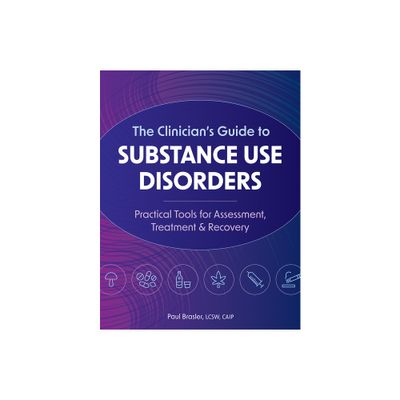Home
Substance Use Disorders in Underserved Ethnic and Racial Groups: Using Diversity to Help Individuals Thrive
Loading Inventory...
Barnes and Noble
Substance Use Disorders in Underserved Ethnic and Racial Groups: Using Diversity to Help Individuals Thrive
Current price: $79.99


Barnes and Noble
Substance Use Disorders in Underserved Ethnic and Racial Groups: Using Diversity to Help Individuals Thrive
Current price: $79.99
Loading Inventory...
Size: OS
*Product Information may vary - to confirm product availability, pricing, and additional information please contact Barnes and Noble
This book examines substance use disorders among individuals and communities of color and offers assessment, treatment, and prevention strategies for supporting and empowering individuals within their cultural contexts.
It explores the unique histories and substance use trends within Black/African American, Latino/Latina/Latinx/Hispanic, Asian American/Pacific Islander, and American Indian/Alaska Native communities. This includes the role of intergenerational trauma and the enduring impacts of colonialism, slavery, and systemic oppression, as well modern injustices and inequities in mental health and medical treatment, criminal justice, and other institutions. Expert contributors draw upon their extensive experiences working in these communities to establish evidence-based recommendations for culturally competent care. They explore common challenges with assessment and treatment, including the limitations of established models that fail to properly account for cultural factors. They offer culturally bound solutions that enable mental health professionals to better help individuals and communities while respecting their unique intersectional identities and values.
It explores the unique histories and substance use trends within Black/African American, Latino/Latina/Latinx/Hispanic, Asian American/Pacific Islander, and American Indian/Alaska Native communities. This includes the role of intergenerational trauma and the enduring impacts of colonialism, slavery, and systemic oppression, as well modern injustices and inequities in mental health and medical treatment, criminal justice, and other institutions. Expert contributors draw upon their extensive experiences working in these communities to establish evidence-based recommendations for culturally competent care. They explore common challenges with assessment and treatment, including the limitations of established models that fail to properly account for cultural factors. They offer culturally bound solutions that enable mental health professionals to better help individuals and communities while respecting their unique intersectional identities and values.


















